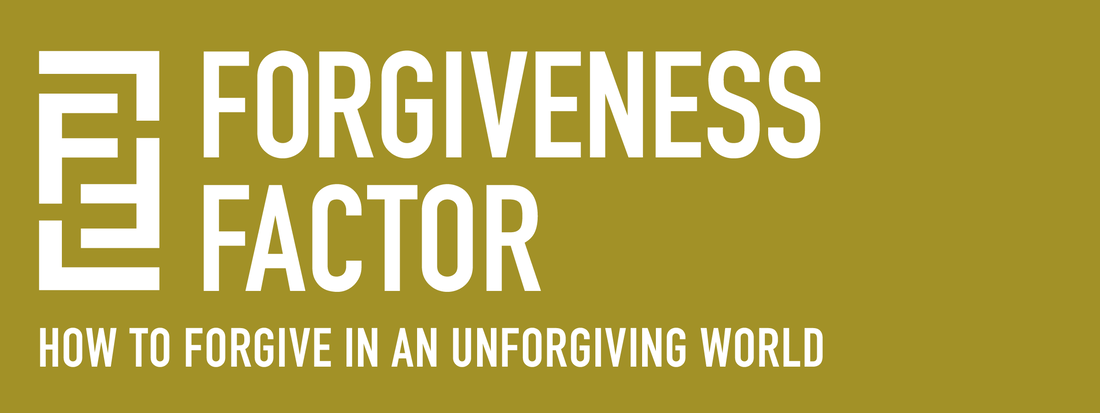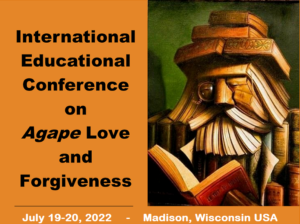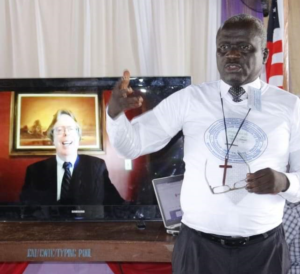Tagged: “forgive”
Speed and Forgiveness
I will try to be brief.
Speed. You can see it in the driving as the very rare few people actually adhere to the posted speed limit these days.
Speed. You can see it as you watch people walking on the street, phone in hand, scrolling, scrolling, scrolling. I wonder how long the average person stays on one topic within that phone.
Speed. Have you noticed the new trend on Facebook?: reels. These are, what?, maybe 10 seconds each? 10 seconds to view a video…….
Speed. Have you seen those commercials on the Internet, promising you weight loss at night as you sleep if you take a certain kind of pill? At night? With no exercise? And immediate results?
Speed. I have seen such statements as, “Forgive in 6 easy steps.”
Speed. It is in contradiction to what it means to grow as a person. To grow as a person is to slowly improve in the virtues, first identified by Plato as justice, or giving your best with your gifted qualities so that the community is better off and in harmony with others. This takes time to develop your gifted qualities. Forgiveness, as a moral virtue, is crafted with three things: practice, practice, practice. It takes effort and time and struggle to be good to those who are not good to you. It even takes time to deeply understand what forgiveness is and what it is not so that you do not confuse it with excusing wrongdoing or automatically reconciling or throwing justice under the bus. There is no such thing as the forgiveness pill that will reduce resentment as you sleep.
Speed and forgiveness. I have come to realize that they are not compatible and so I am concerned about the new norms of speed, shifting focus quickly, and a lack of required attention. The new norms may be getting in the way of our forgiving well and therefore of living well with others.
I say in my classes at the university: Whenever you try to improve something, you always create a new problem. Do not see only the improvement but also scrutinize the new problem to see if the new improvement is worth embracing. We have quickened our world as we get to destinations faster by car, as we see what presents our friend in a distant land got in the birthday party today, as we are entertained with a 10-second video……..but what is the problem created? We are in danger of becoming way too superficial, way too unfocused, way too unchallenged, and miss perseverance, miss growing in the moral virtue of forgiveness, and miss the golden opportunity of growing in our humanity and in assisting others in such growth.
Speed has its place. It just should not have primacy of place.
![]()
Liberia Seeks Peace Through Forgiveness

Forgiveness Education class at Mother Tegeste Stewart Apostolic Pentecostal School in Brewerville, Monrovia, Liberia.
Bishop Brown has been working with IFI co-founder Dr. Robert Enright to implement elementary and secondary school Forgiveness Education initiatives (including for all 500 students at the Mother Tegeste Stewart Apostolic Pentecostal School in Brewerville), after-school forgiveness education clubs, and Sunday School forgiveness lessons. Since 2017, Group Forgiveness interventions also have been incorporated into the LFEP thanks to Bishop Brown’s significant role in governmental affairs.
“I suggested that approach, in all humility, because dialogue will not be fruitful if those engaging in the dialogue are still very angry about past grievances,” Dr. Enright explained. “Forgiveness is a scientifically-supported way of eliminating that anger.”
- Can Group Forgiveness In Liberia Lead to Peace?
- A New Strategy for Peace in the World. . . The Enright Forgiveness Inventory
- First Ebola, Now Coronavirus: Liberia Suffers Again
Learn How to Forgive
You can add a methodical, rejuvenating process of forgiveness to your life by attending the upcoming 6-session “Freedom Through Forgiveness” course that begins September 29.
Taught by forgiveness instructor Tim Markle, the in-person course provides the tools and techniques that will enable you to gain a factual understanding of what forgiveness is, what it is not, and how to use it to methodically improve your health and well-being. The interactive sessions are based on the 20-step “Forgiveness Process Model” developed by Dr. Robert Enright, co-founder of the International Forgiveness Institute (IFI) whom Time magazine calls “the forgiveness trailblazer.”
The course is being sponsored by Stoughton Health with classes held at Stoughton Hospital from 6:30-8:00 pm on consecutive Thursday evenings from September 29 through November 10 (with no class on November 3). The facility is located in Stoughton, WI, 17-miles southeast of Madison. There is no charge for the course but enrollment is limited and pre-registration is required. Visit Freedom Through Forgiveness – Stoughton Health for more information or call Stoughton Health at 608-877-3498.
Markle is an Outreach Specialist at the University of Wisconsin-Madison Waisman Center where he works to improve the lives of children and adults with developmental disabilities and neurodegenerative diseases.  He earned a BA in Psychology from Bowling Green State University, a Masters in Counseling (MC) from John Carroll University, and a Master of Arts in Christian Studies (MACS) from Trinity Evangelical Divinity School. He is a contributing writer and speaker for the IFI and the founder of a forgiveness education organization called Forgiveness Factor.
He earned a BA in Psychology from Bowling Green State University, a Masters in Counseling (MC) from John Carroll University, and a Master of Arts in Christian Studies (MACS) from Trinity Evangelical Divinity School. He is a contributing writer and speaker for the IFI and the founder of a forgiveness education organization called Forgiveness Factor.
A Reflection on the International Educational Conference on Agape Love and Forgiveness, Madison, Wisconsin, July 19-20, 2022
Main Point 1: Despite cross-cultural differences, forgiveness has a common meaning across historical time and across cultures.
Main Point 2: To my knowledge, there never has been a conference on agape and forgiveness before this one.
Main Point 3: It is time for modern culture to reawaken the ancient moral virtues of agape and forgiveness for the good of individuals, families, and communities.
After over a year of detailed preparation by Jacqueline Song and the dedicated team, the agape love and forgiveness conference is now history. That history is preserved in the videos which have captured each talk presented at the conference (the videos are available here: Agape Love and Forgiveness Conference Videos).
I have at least three take-away points as I reflect on this conference:
- The cultural diversity was strong, with presentations by people from Israel, Northern Ireland, the Philippines, Taiwan, and the United States. Despite the wide cultural differences, one thing
 was clear: The meaning of both agape and forgiveness do not change as we get on an airplane and visit cultures that are far away from one another. Instead, the core meaning of agape remains in that as a person loves in this way, it is for the other person(s) and the expression of this love can be challenging for the one who willingly offers it. The core meaning of forgiveness remains as a person, unjustly treated by others, a) makes the free will decision to be good to those who acted unfairly, b) sees the inherent worth in those others, c) feels some compassion for them, d) willingly bears the pain on those others’ behalf, and e) offers goodness of some kind toward them. Yes, those who forgive may not reach all five of these characteristics, but they remain the goal, that to which we want to strive if excellence in forgiveness is our end point. Yes, there are important cultural nuances as one Islamic educator introduced forgiveness to the students with quotations from the Qu’ran and as an educator from a Christian school opened the New Testament to the students. The rich diversity had a glue that bound all together—-the objective reality of what these two moral virtues mean across historical time and across cultures. Objective meaning met cultural nuance at the conference.
was clear: The meaning of both agape and forgiveness do not change as we get on an airplane and visit cultures that are far away from one another. Instead, the core meaning of agape remains in that as a person loves in this way, it is for the other person(s) and the expression of this love can be challenging for the one who willingly offers it. The core meaning of forgiveness remains as a person, unjustly treated by others, a) makes the free will decision to be good to those who acted unfairly, b) sees the inherent worth in those others, c) feels some compassion for them, d) willingly bears the pain on those others’ behalf, and e) offers goodness of some kind toward them. Yes, those who forgive may not reach all five of these characteristics, but they remain the goal, that to which we want to strive if excellence in forgiveness is our end point. Yes, there are important cultural nuances as one Islamic educator introduced forgiveness to the students with quotations from the Qu’ran and as an educator from a Christian school opened the New Testament to the students. The rich diversity had a glue that bound all together—-the objective reality of what these two moral virtues mean across historical time and across cultures. Objective meaning met cultural nuance at the conference.
- Unless I missed something in my travels with forgiveness over the past 37 years, I do not think there ever was an international conference that focused specifically on the moral virtues of agape and forgiveness. If this is true, why is it the case? What has happened within humanity so that these two key moral virtues, so prominent for example in Medieval times, would be characteristically ignored in educational contexts with children and academic contexts in university settings? I think the transition from accepting objective truth about moral virtues (for example, justice is what it is no matter where we are in the world even when there are cultural nuances) has given way to an assumption that relativism is the new truth and so we all can choose the virtues we like and define them as we wish. Do you see the contradiction in such a statement? In the abandonment of objective reality that there is a truth, the new thinking is that relativism (in which there is no truth) is the new objective truth. It is time to reintroduce communities to the moral virtues, which we all share as part of our humanity. We need to know what these virtues are by definition and how we can give them away to others for their good, for our good, and for the good of communities.
- When I look across the globe at communities that have experienced conflict, that now carry the weight of the effects of decades and even centuries of conflict, I have come to the conclusion that a reawakening of the moral virtues of agape and forgiveness is vital if we are to heal from the effects of war and continued conflict with all of its mistrust and stereotyping of the human condition. Agape and forgiveness challenge us to see the personhood in everyone with whom we interact, even those who are cruel to us. This does not mean that we cave in to injustices because the moral virtue of justice requires fairness from all. The healing of hearts, families, communities, and nations will be better accomplished if people now can shake off the dust from agape and forgiveness, that have been so ignored in modernism, and find a new way with the old virtues. It seems to me that agape and forgiveness, as a team, is a powerful combination for the healing of trauma for individuals and relationships. I fear a continuation of the same old conflicts in hearts and in interactions if we do not go back and rediscover the life-giving virtues of agape love and forgiveness and bring them forward now in schools, families, houses of worship, and workplaces.
Robert
I have a co-worker who never stands up for himself nor does he even politely confront those who are giving him a hard time. Instead, he gets angry (away from those with whom he is in conflict). Sometimes that anger comes out toward me. He can occasionally bang his fist into the top of his desk. Do you think his actions are sufficient to relieve his anger or does this even help at all?
Your co-worker seems to be using the psychological defense of displacement, which means to take out the anger on something or someone else rather than on the original person who acted unfairly. In the short-run your co-worker might experience some relief from this catharsis, but in the long-run, as I am sure you know, his hitting the top of the desk will not solve the injustice. If your co-worker can do some forgiving and exercise this along with courage and a quest for justice, then he might be able to go to those at whom he is angry and talk it out in the hope of a fair resolution.




